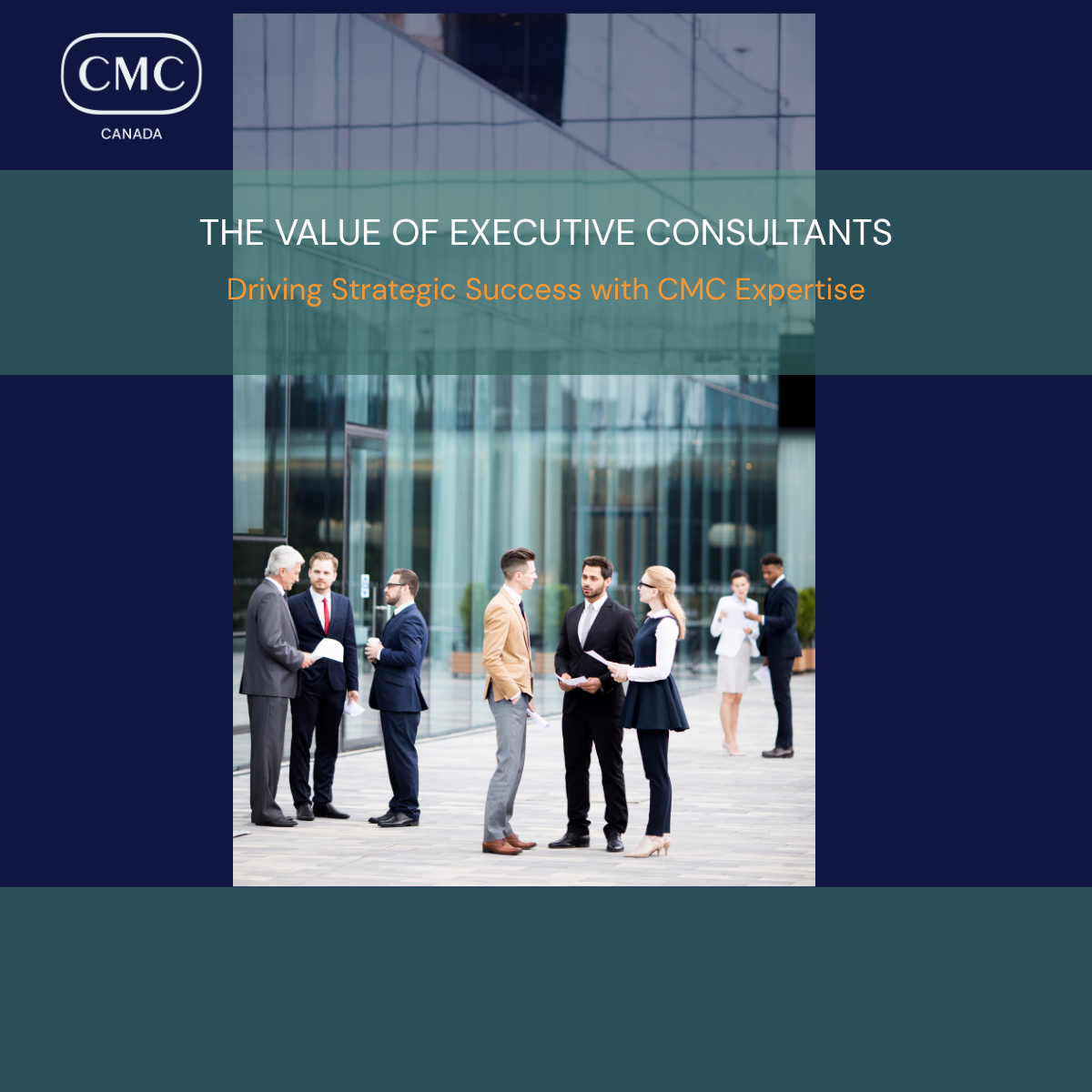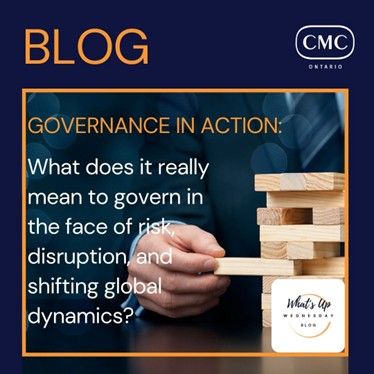By continuing to use our site, you consent to the processing of cookies, user data (location information, type and version of the OS, the type and version of the browser, the type of device and the resolution of its screen, the source of where the user came from, from which site or for what advertisement, language OS and Browser, which pages are opened and to which buttons the user presses, ip-address) for the purpose of site functioning, retargeting and statistical surveys and reviews. If you do not want your data to be processed, please leave the site.
Consulting in an Era of Constant Change
We live in a time when change is no longer the exception—it is the constant backdrop to everything we do. The consulting profession is being reshaped at a rapid pace. Artificial intelligence is transforming the way we analyze data and provide insights.
CMC Canada Certification Guide: Everything You Need to Know Before You Start
This blog provides a practical guide for aspiring Certified Management Consultants (CMCs), answering the five most common questions candidates have about the certification process. From understanding timelines and engagement summaries to costs and finding a sponsor, it offers clarity on each step of the journey. By the end, readers will know how to get started, what to expect, and where to find support as they pursue the CMC designation.
How to Become a CMC by December – Step-by-Step
Become a Certified Management Consultant (CMC) by December 2025. Follow this step-by-step guide to certification through CMC-Canada’s tailored programs.
Your CMC Interview, Demystified: Prep Tips from a Pro
3 tips to acing your Oral Assessment from an experienced CMC
The Value of Executive Consultants: Driving Strategic Success with CMC Expertise
In today’s complex business environment, organizations need trusted, expert advisors to navigate change and drive growth. The Value of Executive Consultants: Driving Strategic Success with CMC Expertise highlights the critical role Executive Consultants—especially those with the globally recognized Certified Management Consultant (CMC) designation—play in delivering strategic, objective, and ethical guidance. CMCs bring deep expertise, proven leadership, and a commitment to results across areas such as business turnarounds, global expansion, M&A, and digital transformation.
This paper explores how CMC-designated consultants help mitigate risk, unlock value, and support innovation in both private and public sectors. It also addresses the ongoing awareness gap around executive consulting and the growing importance of objective, high-level guidance in increasingly complex organizations. As demand for strategic insight and ethical leadership rises, the value of CMC Executive Consultants continues to grow.
Farewell Message from Donna Ringrose
A farewell message from Donna Ringrose, Executive Director of CMC-Canada.
Governance in Action: What does it really mean to govern in the face of risk, disruptions, and shifting global dynamics?
In today’s rapidly evolving landscape, effective governance demands more than oversight—it requires action. Governance in Action: Building Stronger Boards in Disruptive Times explores how high-performing boards are leading through AI disruption, CEO accountability, and internal dynamics. Featuring expert insights from Dr. Richard Leblanc, this session highlights the shift from ceremonial to strategic board engagement, emphasizing courage, adaptability, and proactive leadership. From nonprofits to corporations, the message is clear: governance must evolve to meet the moment.
AI – The Eager Associate: Working with AI in Management Consulting
AI tools like ChatGPT can act as fast and capable, yet inexperienced junior associates in management consulting. They excel at synthesizing information, automating repetitive tasks, and drafting deliverables—but require close supervision to avoid errors and misjudgments. Consultants can boost efficiency and productivity by using AI thoughtfully, providing clear prompts, and critically reviewing outputs. Success lies in treating AI as a helpful assistant—one that needs guidance to deliver real value.
A Message from the New CMC-Canada National Board Vice-Chair, Josée Lemoine, FCMC
As CMCs, we play a critical role in helping businesses and organizations navigate the complex landscape of today's business world.
Un message du nouveau Vice-président du conseil d’administration de CMC-Canada, Josée Lemoine, FCMC
En tant que CMC, nous jouons un rôle essentiel en aidant les entreprises et les organisations à naviguer dans le paysage complexe du monde des affaires d'aujourd'hui.









